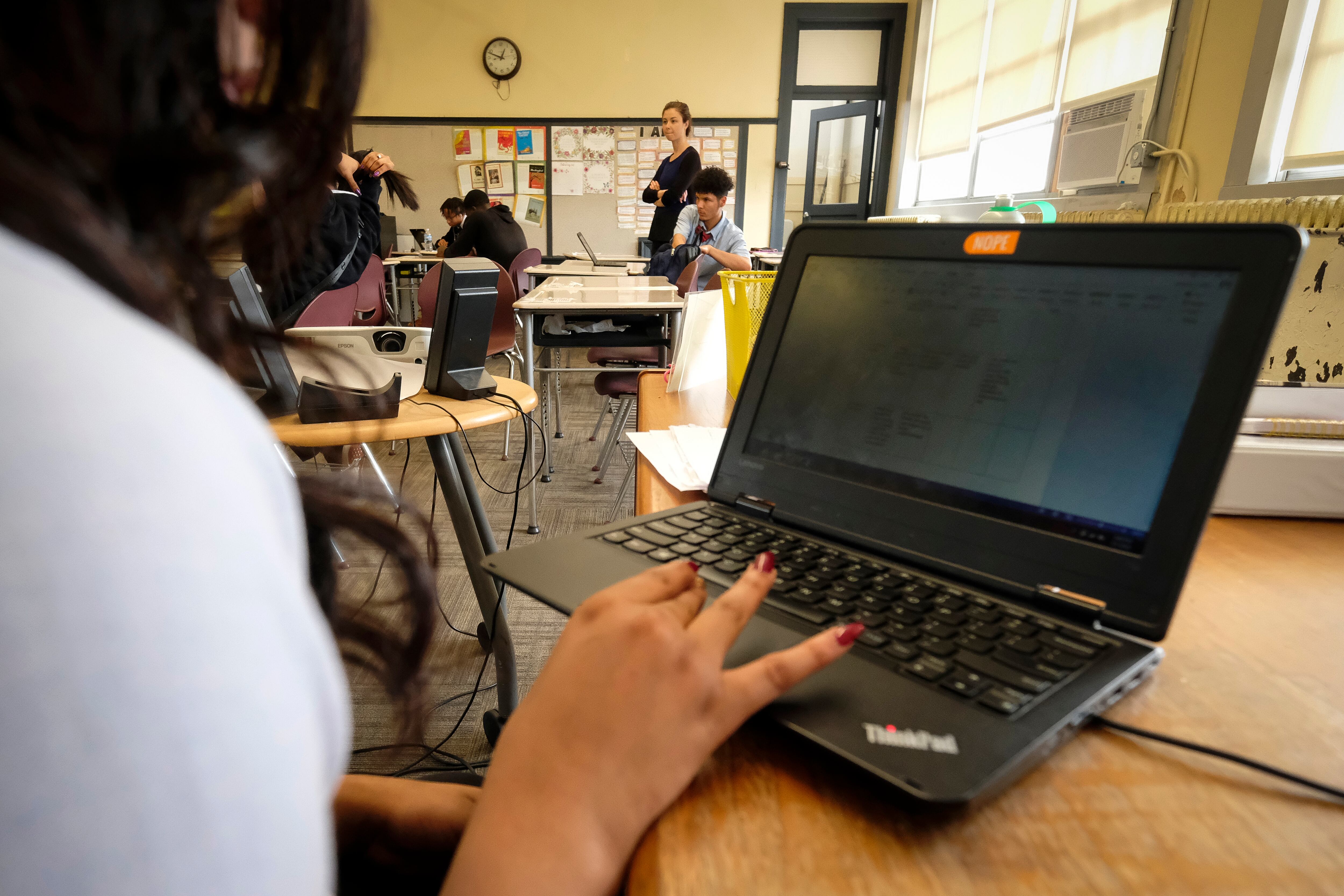Within the first week of reopening schools and welcoming back students and staff, several Indiana districts reported their first coronavirus cases.
In Central Indiana alone at least half a dozen districts saw a teacher or student test positive for the virus last week — a reality the state’s top health official said is unavoidable. State officials aren’t shutting down schools, but insist they may safely remain open but critical for them to take action to avoid a larger outbreak.
But if schools choose to reopen knowing the potential health risk, it raises an important question: How liable are school districts if a student or teacher contracts COVID-19?
Schools have a legal obligation to provide a safe environment for students, said Julie Slavens, senior counsel for the Indiana School Boards Association. That opens the door for lawsuits from families or staff if they feel like the district didn’t do enough to protect them.
But it doesn’t mean schools are more liable now than before, she said. Prior to coronavirus, administrators could never promise an entirely risk-free experience, even if the risk was simply catching the flu. And proving both negligence on the behalf of school leaders and that the virus was contracted in a school could be difficult, Slavens said.
Last month, Gov. Eric Holcomb called on the federal government to protect both schools and businesses from coronavirus-related lawsuits, which at a minimum could be time consuming and costly. He and 21 other Republican governors wrote a letter asking for “common sense” measures that would shield employers who meet an appropriate standard of care.
The proposed coronavirus relief bill, unveiled by Senate Republicans this week, would answer the call by making it harder for workers to sue their employers. The Wall Street Journal reported it would cap punitive damages, raise the requirements for filing personal-injury cases, and push these cases into federal court.
Some companies, including Walmart and Tyson Foods, already have been sued. The bill, if passed, would apply to schools as well as businesses.
Indiana’s two teachers unions have pushed back against shielding school districts, calling on them to either ensure classrooms are safe or to go to virtual learning. Both the Indiana State Teachers Association and American Federation of Teachers have instructed teachers not to sign any waivers or an “acknowledgement of risk” document before school starts.
“Members of AFT Indiana will not be signing any documents, any waivers to that matter,” said President GlenEva Dunham during a press conference earlier this week. They will also consider protesting or striking against districts they feel are reopening unsafely.
Slavens said those signed waivers aren’t legally binding and couldn’t stop an employee or family from filing a lawsuit. But, if sued, a district may point to that document when laying out the precautions it took.
Jay County Schools is among the districts asking families to sign an acknowledgment of risk. In general, the documents state that individuals assume all risk of injury or death by entering school property and agree to abide by the rules and precautions of the school.
Superintendent Jeremy Gulley said the waiver is an attempt to be honest and transparent with parents, and is not motivated by concerns of a lawsuit, he said. Teachers were not asked to sign one.
“My focus is on getting our kids back safely,” Gulley said. “At the end of the day anyone can sue anyone. … A lawsuit is not driving our consideration of how we take care of our people.”
Fort Wayne Community Schools required families to sign a waiver to participate in extracurriculars, but didn’t require one for teachers or students to attend in-person classes. The document says parents who sign “voluntarily assume all risks” and agree not to hold the schools or staff liable for any injuries or expenses that result from COVID-19.
“If you’re playing football ... ultimately there’s no way to maintain social distancing,” said district spokesperson Krista Stockman. “With school, students are entitled to a free public education, and so we need to put in all the safety procedures that we can to make sure that they can have as safe a learning environment as we can create.”





